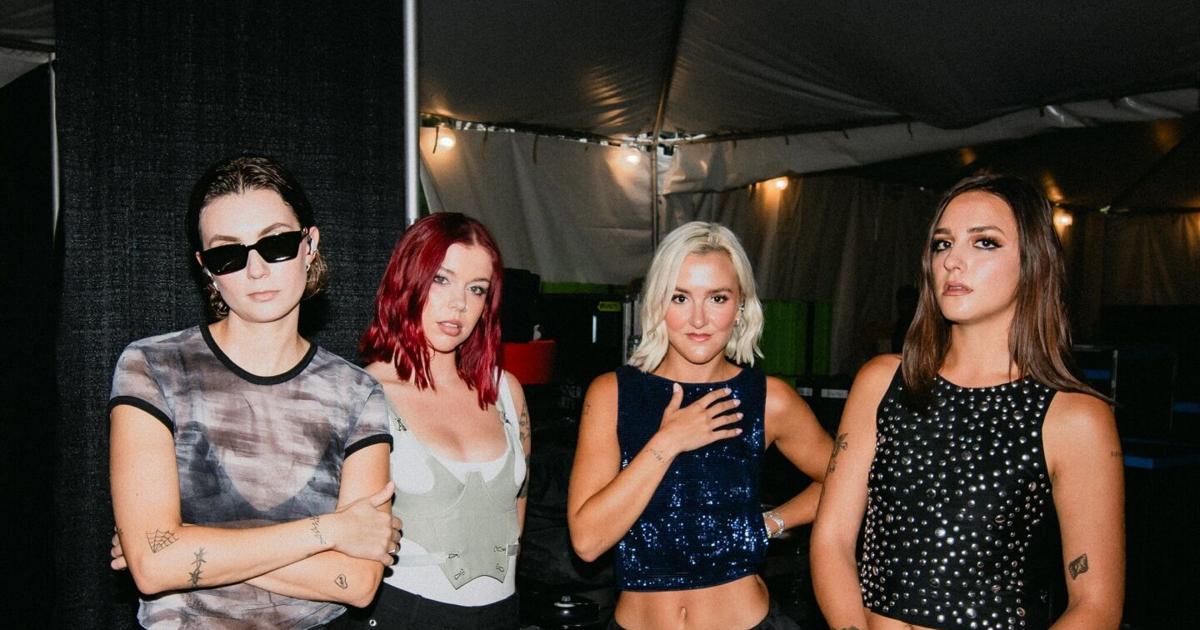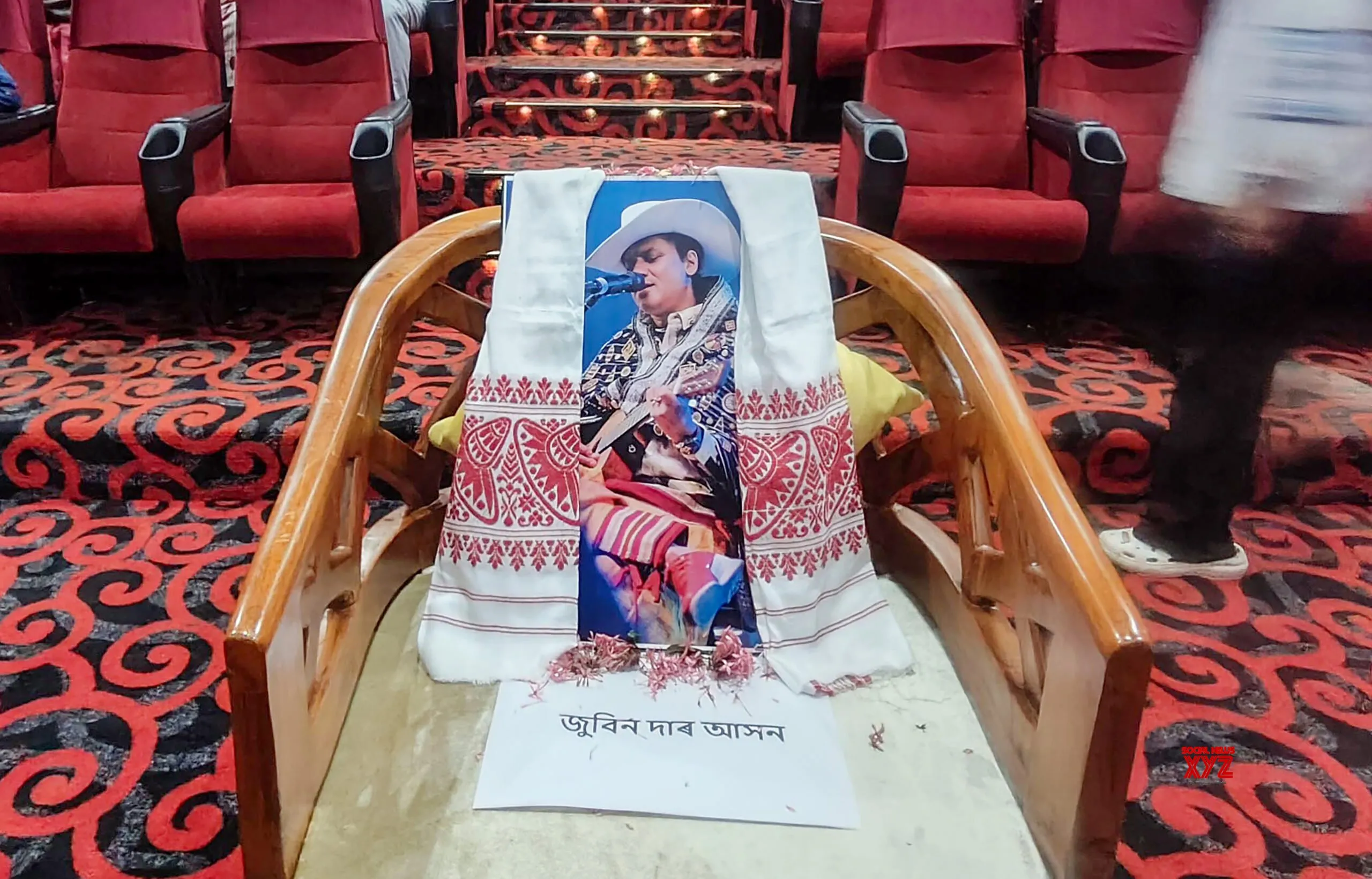Copyright thestar

In 2013, you could catch the Beaches playing the not-so-coveted Wednesday midnight slot at Kensington’s Supermarket. The musicians would take over a table in the corner of the bar and convert it into a makeup station. Before the show, they’d crowd into the backstage area, a hallway just big enough to squeeze your shoulders through. Sandwiched between crates of booze, with the faint scent of cockroach spray in the air, they’d hype themselves up before bounding onto the small stage and performing to an audience of four. “It would be my dad, sometimes Eliza’s dad, Jordan and Kylie’s dad, maybe a random drunk person,” guitarist and keyboardist Leandra Earl told the Star. Earl and drummer Eliza Enman-McDaniel’s heads swing back in laughter as they revisit their earliest days moonlighting as teen rockers with bandmates Jordan and Kylie Miller, waking up early the next day for high school. “I wouldn’t,” Earl corrected. “I’d sleep in, every time.” Next Thursday, the Beaches will jump from performing to a handful of people to a crowd of nearly 20,000 at Scotiabank Arena. While they have played the venue before, opening for Kingston rockers the Glorious Sons in 2018, this will be their first time headlining. It’s a major milestone, but 12 years on, the longtime friends can instantly transport themselves back to the beginning. Among the handful of people who walked into Supermarket one fateful Wednesday night was Joel Baskin, who would become the band’s agent (and remains so to this day). In the traditional rock-biopic version of this story, that’s when the Beaches were “discovered” — cut to a montage of international tours, A-list parties and late-night television appearances. In reality, it would take many more years of playing gigs, releasing music and getting dropped by two labels before the Beaches truly hit their stride. “I had this belief in my bones that we had something really special,” Enman-McDaniel said. “That’s how I justified it to my parents at the time: ‘I promise this is going somewhere and I’m not like every other kid in their parents’ basement.’” After the wallowing phase of a breakup, there is that sweet spot where you hit your stride, feel the sunshine on your face again, and are ready to conquer the world anew. Your exes aren’t completely in the rearview, but they’re more likely to be the punchline of a joke than the root of your sorrow. If you could bottle that energy up and convert it into bold, main-character, karaoke-worthy pop rock, you’d get the Beaches. In a more contemporary spin on the rise-to-fame narrative, the foursome was arguably discovered — by the masses, at least — on social media more than a decade into being a band. Their 2023 track “Blame Brett,” a scorching breakup anthem that name-dropped lead singer Jordan Miller’s ex, Brett Emmons of the Glorious Sons, became a TikTok sensation and changed the trajectory of their lives. Their second album, “Blame My Ex,” shortlisted for the Polaris Prize, soon followed, as did slots on the world’s biggest festival lineups and scaled-up headlining tours, including a gig last year at Budweiser Stage (now RBC Amphitheatre). The music industry seems to finally, though slowly, be catching up to the reality that TikTok virality is not a sustainable foundation for success. Often, a person is catapulted to overnight fame before getting the chance to figure out who they are as an artist. That’s where the Beaches’ decade-plus of preparation worked in their favour. Now a couple of years and a new album, “No Hard Feelings,” past the explosion of “Blame Brett,” they’re a viral success story. In October, they were the first band to be honoured with the Billboard Canada Women of the Year Award. Enman-McDaniel and Earl spoke to the Star on a video call from Seattle, nursing tea and the kind of sickness that tends to hit artists midway through a tour — one whose set lists consist of mostly new material that fans seem to be eagerly soaking up. For the band, next Thursday’s Scotiabank Arena gig is proof that while social media may be the tool, they are the pull. “For a lot of our career, we were signed to two different labels, and with that, it’s hard to be fully authentic when there are all these voices speaking on what you should be doing,” Enman-McDaniel explained. “Once we were unsigned, we were able to really just be as authentic as possible. I think this, with the combination of social media, is why the music resonated the way that it did.” “Authenticity” has become a buzzword — a benchmark that shape-shifts from user to user. For the Beaches, who take their name from the east-end neighbourhood where most of them grew up, authenticity best translates into an unfiltered, refreshing brand of messiness. They’re name-dropping their exes in songs. They’re filming themselves doing drunken handstands on the Hollywood Walk of Fame. One of them is announcing their single status while accepting a 2025 Juno for group of the year. “We’ll go to an award show and be the most fun table there,” Earl said. “Everyone is like, ‘Oh, we want to be your friends, we want to be sitting with you guys,’ because we are four best friends having the best time, all the time. We don’t really care what people think about us. We go into every situation professionally, obviously, but also thinking: how can we make this the most fun?” In this way, the Beaches are serious about not taking themselves too seriously. Or in Earl’s words, “doing stuff for the plot.” “If I have a threesome, I’m not going to be mad about it,” Earl said. “My girls are gonna laugh about it after.” Enman-McDaniel grinned in response. This unfiltered approach easily lends itself to vulnerability, most effectively delivered on “No Hard Feelings” with a signature Beaches wink. On “Touch Myself,” they lament being so heartbroken you can’t bring yourself to masturbate. “Sorry for Your Loss” offers tongue-in-cheek condolences to an ex. But on other songs, the band dives deep into notions of queerness, identity and fame. On the album standout “Jocelyn,” they sing directly to a fan they found on Instagram, unconvinced that they deserve the praise or idolatry of a woman who got her “PhD in politics.” “Everything I do, you should probably do the opposite,” Miller warns in the song’s opening line. “Lesbian of the Year” explores Earl’s experience coming out in her 20s, yet immediately being seen by fans as a symbol of idealized queerness. She recalled opening her phone to messages from people of all ages asking for advice: women who haven’t told their husbands or families that they’re lesbians; young folks who haven’t revealed to anyone, aside from Earl, that they’re queer. “My stage persona is a bit more confident than me offstage,” Earl said. “When I really sit with myself and go through DMs after the show is when I feel the most vulnerable and introspective. I really don’t know it all. There’s a lot of people looking to me for answers. I don’t want to give the wrong answer, but I also don’t have the capacity to be there for all of these people. It’s this internal conflict, all the time.” The Beaches, in their ascent to fame, are experiencing the flip side of the vulnerability coin. On one side is relatability. When fans look at an artist and see a mirror image of themselves, this creates an opportunity for closeness, catharsis and connection. But on the other side, it introduces in the artist a new set of pressures for modelling the decisions and behaviours those fans might then follow. Willingly or not, the artist’s life becomes a blueprint. On the current tour, Jordan Miller has been posting about going through a breakup while on the road. In one video, she can be seen singing a song that she wrote about her former partner while they were together, her eyes glazed with tears. “This song gave me the courage to break up with my ex,” reads one comment. It’s the unwritten contract of the artist-fan dynamic: one person’s pain, when so openly (and bravely) expressed, can become another person’s permission. But so too can the confidence, the queerness and the audacity that the Beaches bring to the stage. “From the perspective of an audience member being a woman and seeing four women up on stage embracing who they are and not really giving a f—k,” Enman-McDaniel said, “the messiness can be really liberating.” As their lives have shifted over the past couple of years, the bandmates have learned to lean on new friends in the industry. They cite Australian singer-songwriter G Flip and genre-bending American artist K.Flay among those who have helped them navigate new terrain. But from the earliest days gigging across Toronto, their most reliable lifelines continue to be one another. “Sometimes when something stupid happens on stage, I’ll look at Leandra and we’ll laugh,” Enman-McDaniel said. “It feels like it’s just the four of us in the room.” On Thursday, they will no doubt have a backstage area wider than shoulder-width at Scotiabank Arena. Though their parents will still be there, they’ll no longer be among the only people in the audience. Thousands of fans will join them — and maybe a few exes, too. But at any given moment, the Beaches will be able to look at one another, zero in, and know that it’s still just the four of them.



